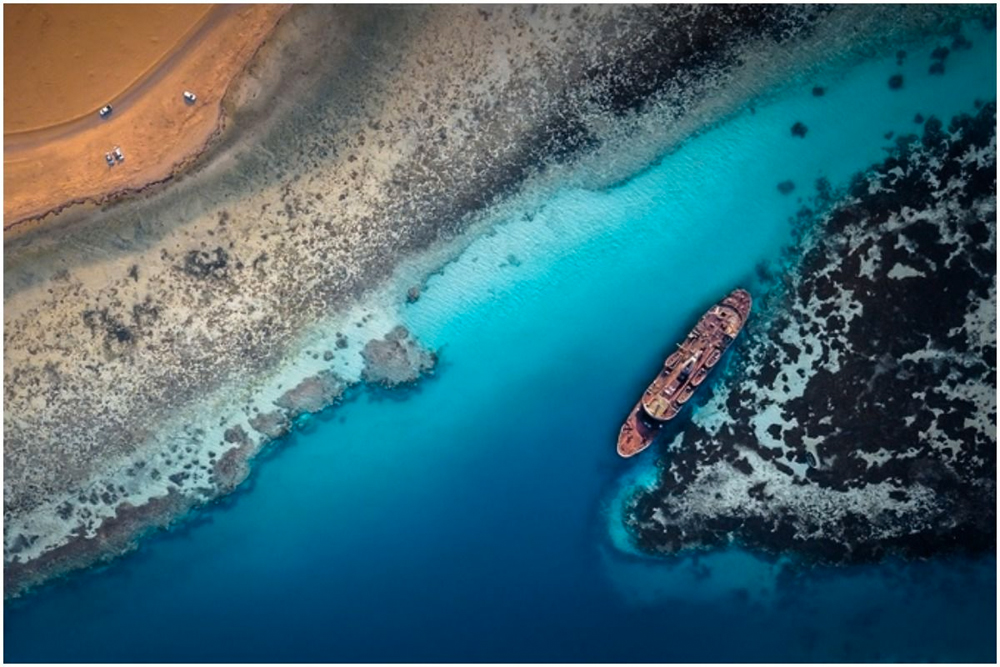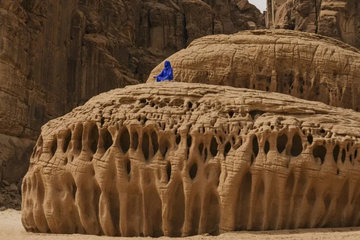
Tourists travel around the world to either learn about other cultures, take a much-needed break in a faraway location, or satisfy their sense of adventure, capturing fantastic photos of their travels or returning home with fond memories and souvenirs. As for those who prefer a more nature filled journey, many naturally gravitate towards outdoor locations, be it green hills, majestic waterfalls, stretches of stunning desert, or mountainous terrains, and the wildlife that call these ecosystems home, and if there is one country that offers all of this, it is Saudi Arabia.
Saudi Arabia's “Tourism Pioneers Camp” aims to build human resources in tourism, develop their skills, and transform their ideas into innovative prototypes.https://t.co/9tmFY7oB8b
— About Her (@AboutHerOFCL) September 9, 2021
Indeed, over the past few years, there has been increasing interest in Saudi Arabia, a lot of it attributed to the Kingdom’s diverse offerings of eco-touristic locations. Indeed, Saudi Arabia does recognize the potential of ecotourism, and is working towards becoming the region's destination of choice. The Kingdom has several regions that are of high priority such as Asir and Jazan in south, its Red Sea islands, and more. If all goes well, ecotourism is projected to contribute to the nation’s target revenue of $133 billion in tourism by 2030.
The two Saudi organizations will be working together on marine environment sustainability, food security and energy conservation. One of the goals is to address the value of biodiversity in the project area, 30% by 2040.https://t.co/g6wCE8d1mq
— About Her (@AboutHerOFCL) June 24, 2021
For instance, the Red Sea is home to the Farasan Islands, an archipelago of over 80 islands, which are quite popular amongst tourists. People flock to the islands for their favorable climates, lush greenery, sandy beaches, striking mountains, local wildlife, and coral reefs. The area is also ideal for boats and scuba diving. Currently, Saudi authorities are working to help preserve the natural wonders of the Red Sea, and the Red Sea Development Company is working towards 100 percent renewable energy.
Heading south, the country offers even more natural wonders. What makes Asir distinct, for instance, is its diverse ecosystem, and the weather that allows for green destinations. Asir National Park, which was founded in 1980, is a key example of where tourists can admire lush greenery while getting a glimpse of local wildlife, and some of the Kingdom's tallest mountains. Overall, it's a breathtaking landscape that must be on your next travel list.
Discover The Outstanding Al Disah Valley in Saudi Arabia: https://t.co/2k5Jqx1jOn pic.twitter.com/EkDIvwRcSh
— About Her (@AboutHerOFCL) April 7, 2021
Speaking of mountains, caves are among the most visited areas by ecotourists, and the Kingdom currently has many that are worth checking out. Situated about 200 kilometers north of Riyadh, the Saudi Geological Survey (SGS) stated that the caves there are able to receive over 1,000 visitors per day, and staff have been trained to assist tourists on their adventure. The Public Investment Fund (PIF) has also come forward to assist the Wadi Al Disah Development Project, which aims to improve the valley for tourism.
12 Fun Things To Do In #Riyadh: https://t.co/2dBXvvcbVR pic.twitter.com/ZnIVwHkiZI
— About Her (@AboutHerOFCL) March 13, 2021
From initiatives to preserve natural terrains, to projects focused on repopulating regions with native wildlife, Saudi Arabia is gearing up to open its doors to a world of nature lovers and travelers looking for the next breathtaking eco-tourism spot.

















